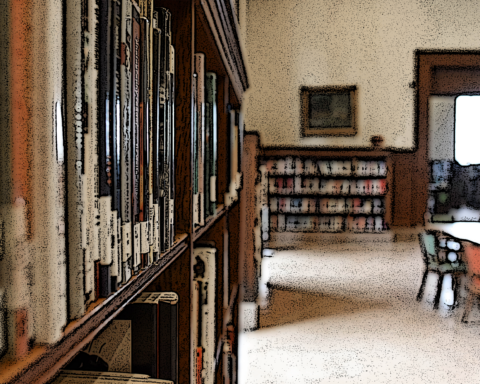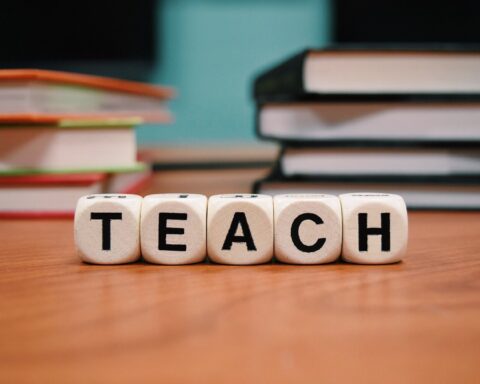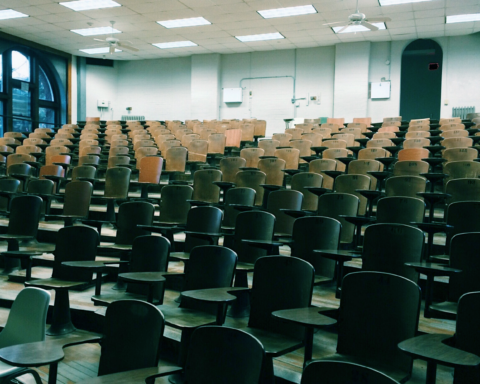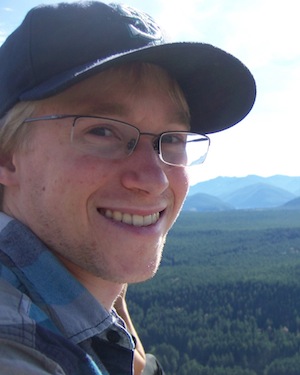 Unbound: What is your role in the education system?
Unbound: What is your role in the education system?
Laura: I have worked as an undergraduate academic advisor for two and a half years. In this capacity, I help motivated students to identify and pursue ways in which they can take their academic interests to the next level. These ways include academic extracurricular groups, undergraduate research, and applications for postgraduate fellowships.
Unbound: At what type of school do you work?
Laura: I work at a private research university in a large urban area. Though the university was founded on Jesuit values and continues to incorporate them into its culture, it embraces traditions and viewpoints from all religions.
Unbound: Tell me about the demographics of your students.
Laura: The university where I work creates community and support for students of many backgrounds. Students come from a wide range of places; our current junior class, for example, is made up of young people from all fifty states and over 130 countries. Many student-led groups on campus work to spread awareness and appreciation of different cultural beliefs and traditions and are supported wholeheartedly by the institution as a whole.
___________________________________________
With its Jesuit heritage and focus on values such as care of the whole person, the university has created a culture in which it’s not taboo to discuss faith. At the same time, there’s an understanding that no one faith is right or wrong.
___________________________________________
Additionally, the university works to support students from many financial backgrounds. Its admission process is need-blind, and it meets the financial need of all admitted students in full. Finally, several offices on campus provide services specifically for first-generation college students.
Unbound: Why do you work in education?
Laura: The undergraduate experience is, to me, a particularly important part of a person’s development. College is often a time when students take significant steps from childhood to adulthood. They choose a major, explore internships, live on their own, and consider seriously what they will do after graduation. It’s an exhilarating, challenging, confusing, and sometimes terrifying time. I work in education so that I can help to smooth this transition for students; I want to help them develop the skills and support that they need to be successful in and after college, however they might define success. I want to encourage them to think deliberately about their choices, and at the same time to understand that there is rarely only one “right” choice to be made.

I feel called to provide this support as an academic advisor largely due to two elements of my own undergraduate experience at The College of William and Mary. First, I had incredible faculty advisors who made an indelible impression on my life, both academically and personally. I strive to provide my students with the same encouragement that they gave me. Second, I know firsthand how difficult it can be for a driven, talented student to maintain a good work/life balance, to keep perspective, and to believe that s/he will be successful outside of an academic setting. Whether through application advice or informal office hour chats, I want to help my students learn to be resilient and confident in all areas of life.
Plus, let’s face it – I am just a huge nerd! I love working in the atmosphere of intellectual curiosity and discovery that a university provides. I’m working on my MA right now, and it’s great to pursue my own academic passions alongside my students and colleagues.
___________________________________________
Our current junior class, for example, is made up of young people from all fifty states and over 130 countries.
___________________________________________
Unbound: Do your worldview and your beliefs about religion and ethics affect your work in the school system?
Laura: I wouldn’t say that my personal beliefs impact my work, so much as personal beliefs – my own, those of my students, those of my colleagues – are just a part of the university culture here. With its Jesuit heritage and focus on values such as care of the whole person, the university has created a culture in which it’s not taboo to discuss faith. At the same time, there’s an understanding that no one faith is right or wrong; any belief, or the absence of a belief system, is equally valued and respected. My students see me worship in masses on campus; my colleague shares her evangelical Protestant childhood and current agnostic beliefs over lunch; my students teach me about their Mormon, Hindu, Islamic, and atheist belief systems. By and large, beliefs serve as one way that we might get to know one another on campus. And if it never comes up, that’s OK too.
 The one belief (if you could call it that) that I do try to work into my advising is the principle of mindfulness. I think it’s very important for everyone to try and incorporate a few minutes of mindfulness into each day – whether that’s through prayer, meditation, yoga, journaling, or a quiet walk. I’ve worked with students to brainstorm ways in which they can be more mindful, discussed with them how mindfulness can help them with discernment, and also encouraged them to use this as a time to check in with their physical and mental health. Mindfulness exercises certainly are not mandatory, but I hope that they will be helpful to my students at some point.
The one belief (if you could call it that) that I do try to work into my advising is the principle of mindfulness. I think it’s very important for everyone to try and incorporate a few minutes of mindfulness into each day – whether that’s through prayer, meditation, yoga, journaling, or a quiet walk. I’ve worked with students to brainstorm ways in which they can be more mindful, discussed with them how mindfulness can help them with discernment, and also encouraged them to use this as a time to check in with their physical and mental health. Mindfulness exercises certainly are not mandatory, but I hope that they will be helpful to my students at some point.
Unbound: What is the most challenging part of your work?
Laura: It can be difficult to find balance in my approach to advising students. There’s my tough side that goes by ‘Ms. Wagstaff’; she gives extensive edits and rarely takes excuses for unpreparedness. Then there’s my softer side, the side that listens when a student is struggling with a personal issue, that always brings food to discussion sections, and that shares funny stories about her dog. I’m not a peer to my students, but I’m not so far removed from them; at most, I’m ten years older than they are. I’m enrolled in university classes myself (albeit as a graduate student). It’s been tough to figure out what kind of advisor I want to be, and then how that approach changes in relation to each particular student. But I’m getting the hang of it.
___________________________________________
I’d love to see creative thinking supported to a greater extent at the high school level.
___________________________________________
Unbound: What is the best part?
Laura: The absolute best part of my job is being able to help jumpstart my students’ ideas and aspirations. Often, students come to me feeling stuck: they have a great idea but don’t know how to move forward; they can’t decide between two great summer opportunities; they just can’t get the wording right in a cover letter. I love being able to diffuse their feelings of frustration by listening carefully, asking questions, and pointing them towards resources that can help them. It’s not that I have all the right answers – I definitely do not! – but it’s very rewarding to think through problems with them and to enhance their toolkit.
 Unbound: Based on your experience, if you could magically enact one large-scale change for education in general, what would it be? Why?
Unbound: Based on your experience, if you could magically enact one large-scale change for education in general, what would it be? Why?
Laura: Oh man, that’s a tough one! Ideally, I would address access to education. I would love to be able to make a quality, affordable education available and attainable for all through the undergraduate degree. If that’s not dependent on the ‘magic wand’ you’re offering, I don’t know what is!
Perhaps more realistically, I’d love to see creative thinking (broadly defined) supported to a greater extent at the high school level. Each year, my students struggle more and more to develop and present their own ideas. They have performed incredibly well in high school, ace-ing AP exams and standardized tests, but many come to college quite hesitant when it comes to in-class discussion or open-ended essay assignments. They struggle to see the forest for the trees.
I want to be clear – myriad factors contribute to this difficulty, and I believe that standardized testing is necessary for many reasons. However, I would love to see high schoolers empowered to a greater extent to ask their own questions, to defend their own ideas, and to take responsibility for their own work. With these transferable skills as a foundation, students would be poised for success in whatever their next steps may be: an undergraduate college degree, a trade school, or a first job.
*****
Read more interviews with educators!
Read more articles in this issue: Pedagogy for the Distressed!






Unbound Social